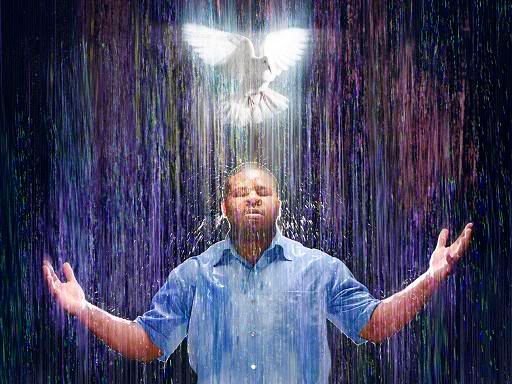How to Be a Born-Again Christian

Faith—Belief and Trust
When God pardons the sinner, remits the punishment he deserves, and treats him as though he had not sinned, He receives him into divine favor, and justifies him through the merits of Christ’s righteousness. The sinner can be justified only through faith in the atonement made through God’s dear Son, who became a sacrifice for the sins of the guilty world. No one can be justified by any works of his own. He can be delivered from the guilt of sin, from the condemnation of the law, from the penalty of transgression, only by virtue of the suffering, death, and resurrection of Christ. Faith is the only condition upon which justification can be obtained, and faith includes not only belief but trust. ... TR 29.1
Many concede that Jesus Christ is the Saviour of the world, but at the same time they hold themselves away from Him, and fail to repent of their sins, fail to accept of Jesus as their personal Saviour. Their faith is simply the assent of the mind and judgment to the truth; but the truth is not brought into the heart, that it might sanctify the soul and transform the character. ... TR 29.2
Can I Repent Without Help?
Many are confused as to what constitutes the first steps in the work of salvation. Repentance is thought to be a work the sinner must do for himself in order that he may come to Christ. They think that the sinner must procure for himself a fitness in order to obtain the blessing of God’s grace. But while it is true that repentance must precede forgiveness, for it is only the broken and contrite heart that is acceptable to God, yet the sinner cannot bring himself to repentance, or prepare himself to come to Christ. Except the sinner repent, he cannot be forgiven; but the question to be decided is as to whether repentance is the work of the sinner or the gift of Christ. Must the sinner wait until he is filled with remorse for his sin before he can come to Christ? The very first step to Christ is taken through the drawing of the Spirit of God; as man responds to this drawing, he advances toward Christ in order that he may repent. TR 29.3
The sinner is represented as a lost sheep, and a lost sheep never returns to the fold unless he is sought after and brought back to the fold by the shepherd. No man of himself can repent, and make himself worthy of the blessing of justification. The Lord Jesus is constantly seeking to impress the sinner’s mind and attract him to behold Himself, the Lamb of God, which taketh away the sins of the world. We cannot take a step toward spiritual life save as Jesus draws and strengthens the soul, and leads us to experience that repentance which needeth not to be repented of. ... TR 30.1
When before the high priests and Sadducees, Peter clearly presented the fact that repentance is the gift of God. Speaking of Christ, he said, “Him hath God exalted with His right hand to be a Prince and a Saviour, for to give repentance to Israel, and forgiveness of sins” (Acts 5:31). Repentance is no less the gift of God than are pardon and justification, and it cannot be experienced except as it is given to the soul by Christ. If we are drawn to Christ, it is through His power and virtue. The grace of contrition comes through Him, and from Him comes justification. ... TR 30.2
Faith is More Than Talk
The faith that is unto salvation is not a casual faith, it is not the mere consent of the intellect, it is belief rooted in the heart, that embraces Christ as a personal Saviour, assured that He can save unto the uttermost all that come unto God by Him. To believe that He will save others, but will not save you is not genuine faith; but when the soul lays hold upon Christ as the only hope of salvation, then genuine faith is manifested. This faith leads its possessor to place all the affections of the soul upon Christ; his understanding is under the control of the Holy Spirit, and his character is molded after the divine likeness. His faith is not a